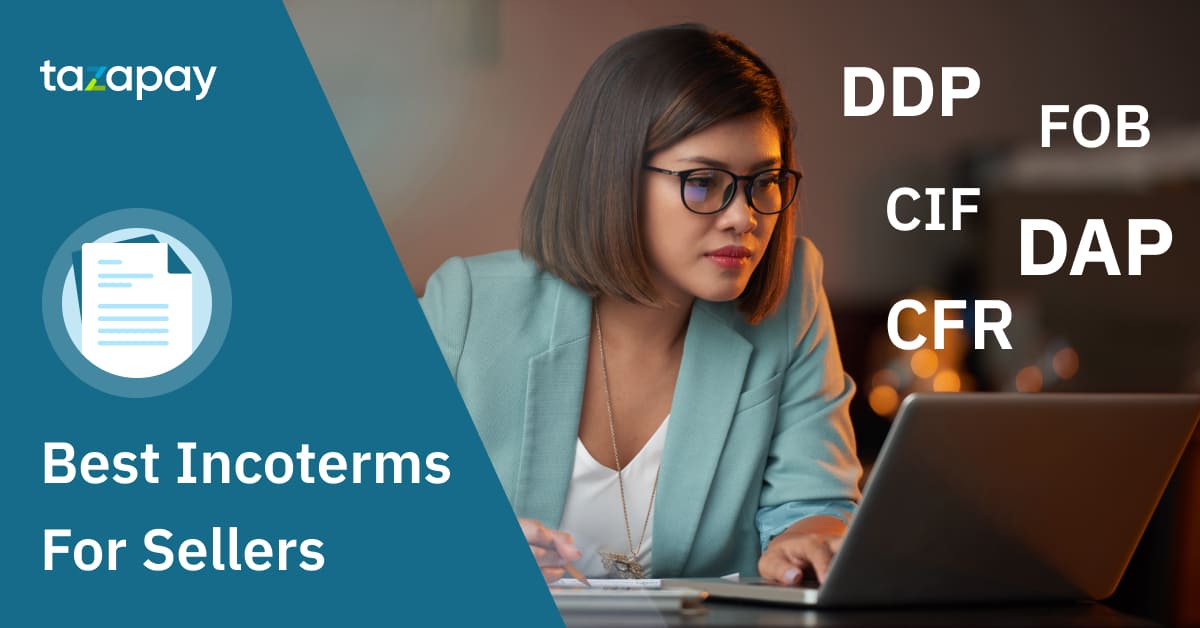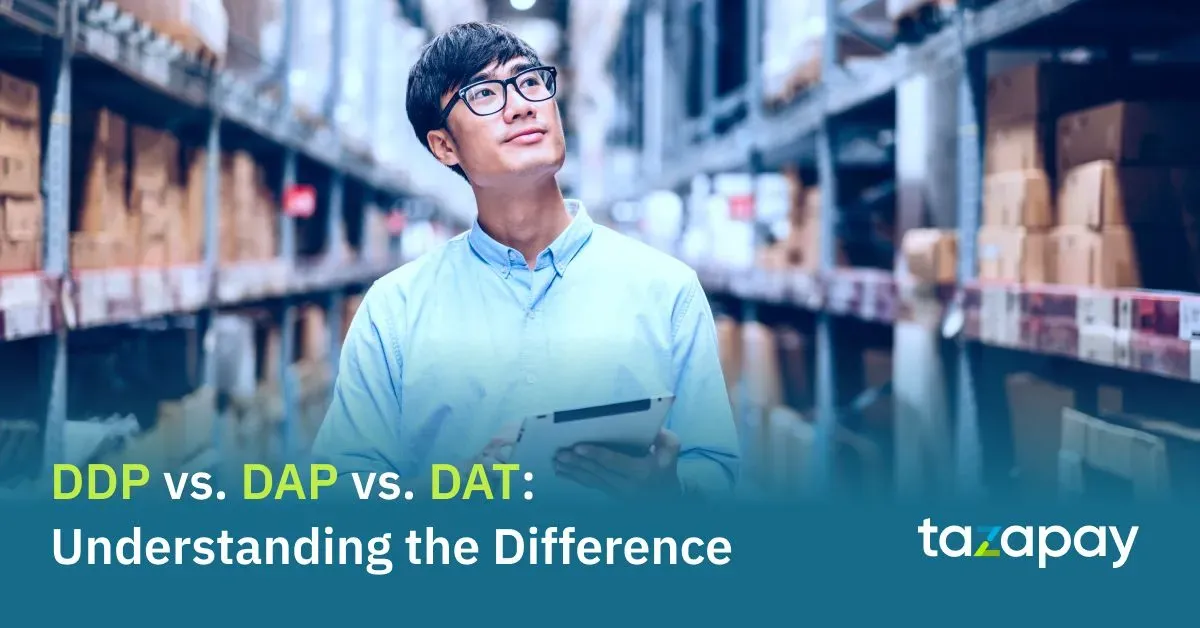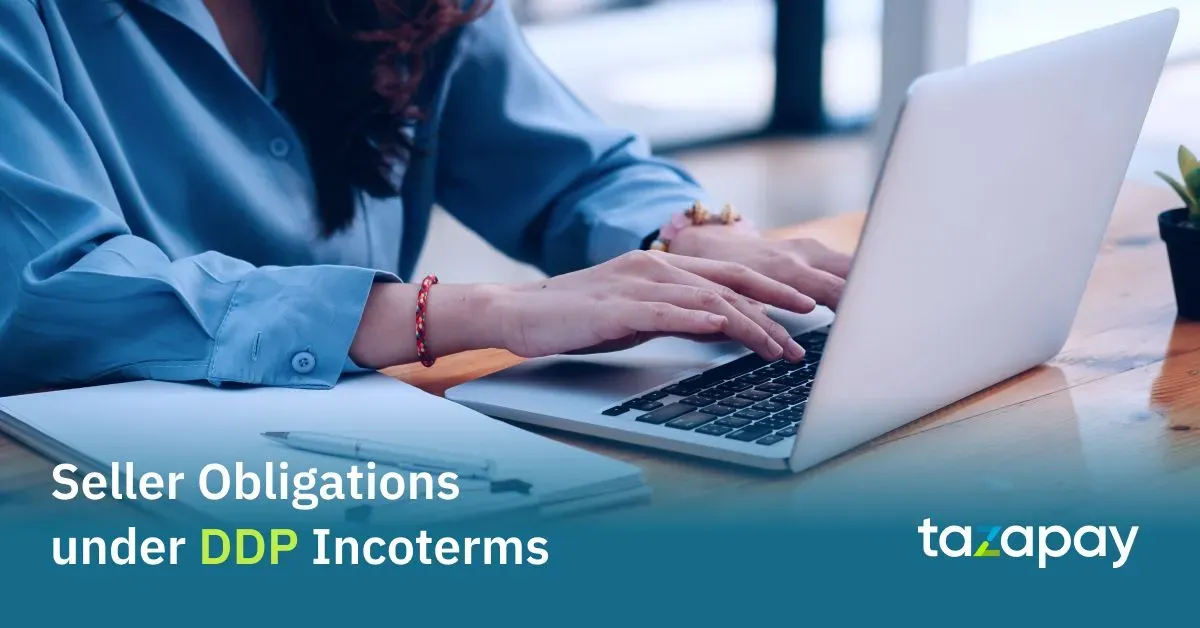- Home
Blog Blog
Customs & Incoterms Customs & Incoterms
Best Incoterms for Sellers and Exporters
Best Incoterms for Sellers and Exporters

Whenever an international trade transaction takes place, there are two parties involved, the buyer and the seller. While both enter in a mutually-benefitting contract, there are certain rules and regulations which have to be followed and a contract is made where the roles and responsibilities of both the parties are defined. These predefined sets of rules are referred to as incoterms. They are published by the International Chamber of Commerce which regulates the contractual clauses used in the sales transaction. There are as many as 11 incoterms that one can choose from when making a transaction. For a seller, however, there are a few terms that are more beneficial as they give them greater control over the entire transaction. Let us delve deeper into some incoterms that work best for sellers:

1. Cost and Freight (CFR)
When a seller chooses the cost and freight option, he pays for the transport of the goods, but only up to the port of destination mentioned. After that, the risk gets transferred to the buyer when the goods are loaded in the country of export. It is important to understand the CFR shipping term meaning and the conditions that come with it when opting for it. Here the shipper’s responsibility includes export clearance and freight costs but is not responsible for the delivery to the destination from the port. CFR is considered to be the best option for non-containerized sea freight and inland waterway transport.
2. Cost, Insurance, and Freight (CIF)
Here the arrangement is much similar to that in the CFR, but the only difference is that the seller ensures the merchandise/goods instead of the buyer doing it. Here it is the seller who chooses the forwarder and the delivery is accomplished when the goods arrive at the port of the destination. One must clearly understand the CIF incoterm meaning and know that it applies only for inland waterway transport and is used frequently in both B2C and B2B transactions. It gives the seller the flexibility to opt for the best rates, routes, and transit times.
3. Freight on Board (FOB)
This is among the most commonly used incoterms in international sales. When choosing this arrangement, the seller is responsible till the time the goods are loaded at the port of origin. It turns out to be a very cost-effective option and works well for all suppliers who do not wish to negotiate the freight rates with their freight forwarders. It is important to note that FOB refers to inland waterway transport of goods. Here the responsibility of the buyer for transportation and insurance begins the moment the seller releases the goods.
4. Delivered Duty Paid (DDP)
Under this incoterm, it is the seller who is responsible for delivering the goods to the destination/buyer’s door. This means that the seller has to deal with all the tasks involved in transferring the goods throughout the shipping process. As he will be responsible for all the costs, including the payment of fees and duty, he must be well aware of all the shipping rules and regulations of the importing country.
5. Delivered at Place (DAP)
This incoterm requires the seller to carry out the necessary packing at his own cost to ensure that they reach the destination safely. While all the legal formalities in the exporting country are done by the seller, once the goods arrive in the destination country, the customs clearance (import permit, customs duties, and taxes) is to be done by the buyer.
So if you are a seller who does international transactions often, make sure you have good knowledge of all the above incoterms so that you can choose one that is mutually beneficial to you as well as the buyer. It is also advised to select a safe and reliable payment platform like Omoney for cross-border transactions to ensure that you are paid by your buyers on time. Omoney equally protects sellers and buyers, ensuring that sellers are paid in full as soon as your goods have cleared inspection.
Category

Customs & Incoterms
Best Incoterms for Sellers and Exporters
Related Articles

DDP vs. DAP vs. DAT: Understanding the Difference

2010 vs. 2020: What Has Changed in Incoterms






